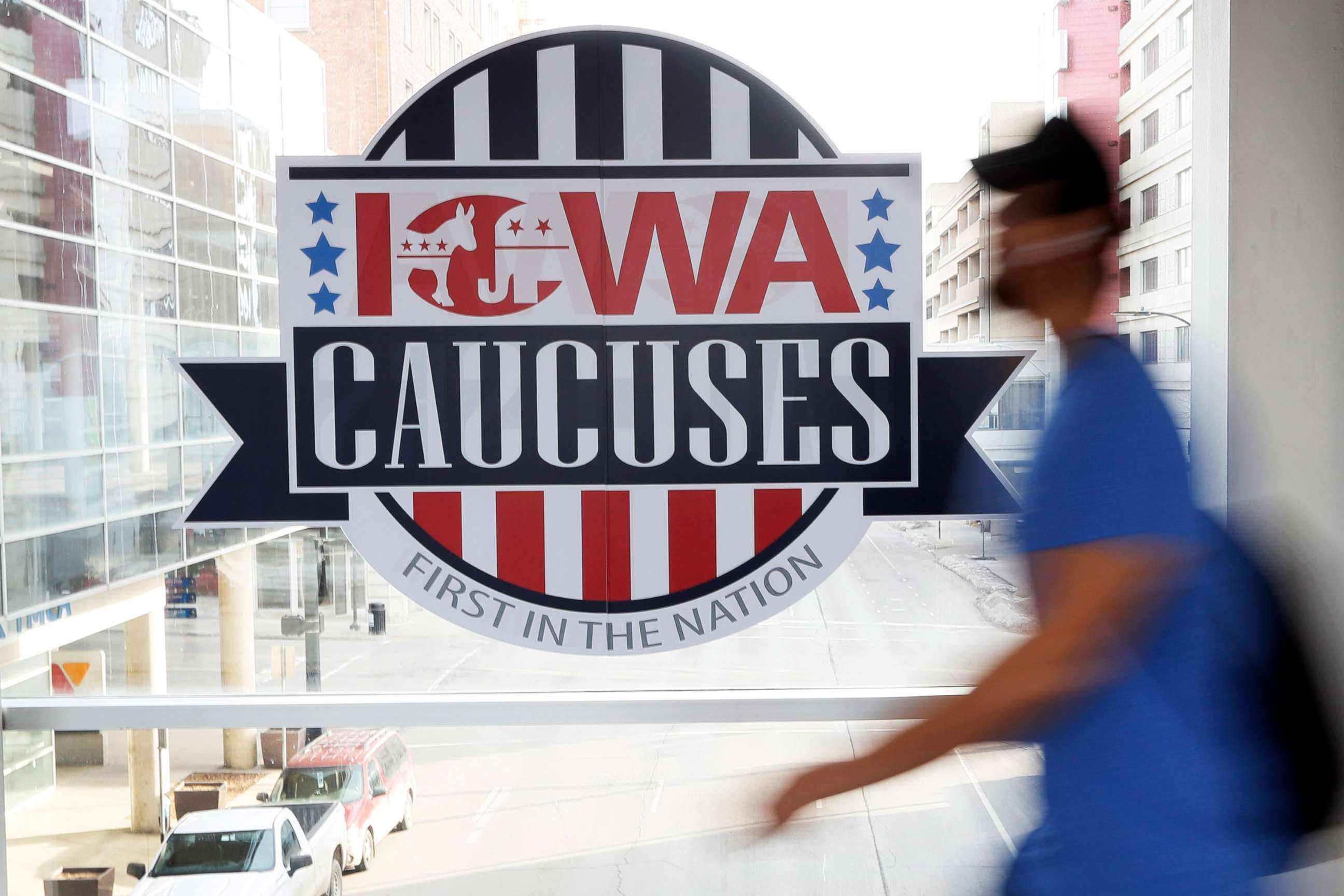Republicans stress this attack in Iowa: Democrats don't value your caucus enough
Local Republicans had supported state Democrats trying to keep Iowa first.
Republicans are seeking to turn an Iowa issue -- Democrats' likely decision to scrap the state as first-in-the-nation on its presidential nominating calendar -- into a persuasive attack line ahead of the November midterm elections.
At the Republican Party of Iowa's annual fundraiser in Des Moines on Wednesday, known as the Lincoln Dinner, national and statewide figures lauded their party's decision to keep the Iowa GOP caucus at the start of the 2024 presidential nominating process, a decades-long tradition that holds pride of place for many Iowans -- but which many Democrats have sought to replace for a move diverse and competitive state.
"The Democrats are absolutely walking away from Iowa. They 100% are. They're moving it. They're moving their decision till after November, which means they're walking away from Iowa," said Republican National Committee chairwoman Ronna McDaniel, the Lincoln Dinner's headliner.
Iowa is home to one of the country's most electorally vulnerable House Democrats, Rep. Cindy Axne, who is set to face state Sen. Zach Nunn in November. Axne is trying to hold onto her newly redrawn swing seat in a district that former President Donald Trump handily carried during both his 2016 and 2020 campaigns.
Given Democrats' fragile majority in Congress, Axne's fate could help determine the balance of power in the House.
Referring to how Iowa was likely soon to lose its spot on the Democratic calendar, McDaniel said Wednesday, "I think Zach, you should be using this in your race against Cindy."

Democrats' new application process this year to choose which states secure early slots in the 2024 schedule effectively demotes Iowa because of the criteria: diversity, competitiveness and feasibility.
In a delay, however, the party won't finalize its next presidential nominating calendar until the midterm elections are complete.
Conversely, McDaniel said, Republicans have continued to "value" Iowa's caucus.
"Most of all, it comes down to the grassroots and the investment from you and the serious nature in which you put into selecting who Iowa will choose in your caucus, so I didn't want to change it," she said Wednesday.
Despite McDaniel's criticism, state Democrats had tried to preserve their prominence -- and had the support of state Republicans.
Iowa GOP Chair Jeff Kaufmann, the chairman of the RNC's presidential nominating process committee, was a vocal advocate for Iowa Democrats in their likely unsuccessful fight.
"I stand beside my Democratic colleagues, my Iowa Democratic colleagues," Kaufmann said on a press call in April.
"I don't think that the national party wants to send the message that this would send," he said then.
"Republicans are going to go first. I want Iowa Democrats to go first," he said. "Look, even if there's a political advantage to me being able to say that they, you know, they tossed it overboard -- I don't want to be able to say that."

Iowa, which is majority white, has increasingly been dinged by some Democrats as unrepresentative of the party's larger electorate. Iowa Democrats chafe at that criticism, noting the state was early to back barrier-breakers like Barack Obama.
Michigan Rep. Debbie Dingell, a Democrat, told ABC News earlier this year that she believed Iowa and New Hampshire -- which always holds the country's first Democratic primary -- should not have "a disproportionate impact on the presidential nominating system."
"I think [Michigan] should have a chance, but I think every state in the country should have an opportunity to be in that rotation, to have presidential candidates know what your issues are," Dingell said then. "Every region should have their opportunity to get the kind of attention New Hampshire and Iowa do."
At a DNC meeting in June, Iowa Democrats made their pitch for the top early-state slot along with 16 other states and Puerto Rico.




